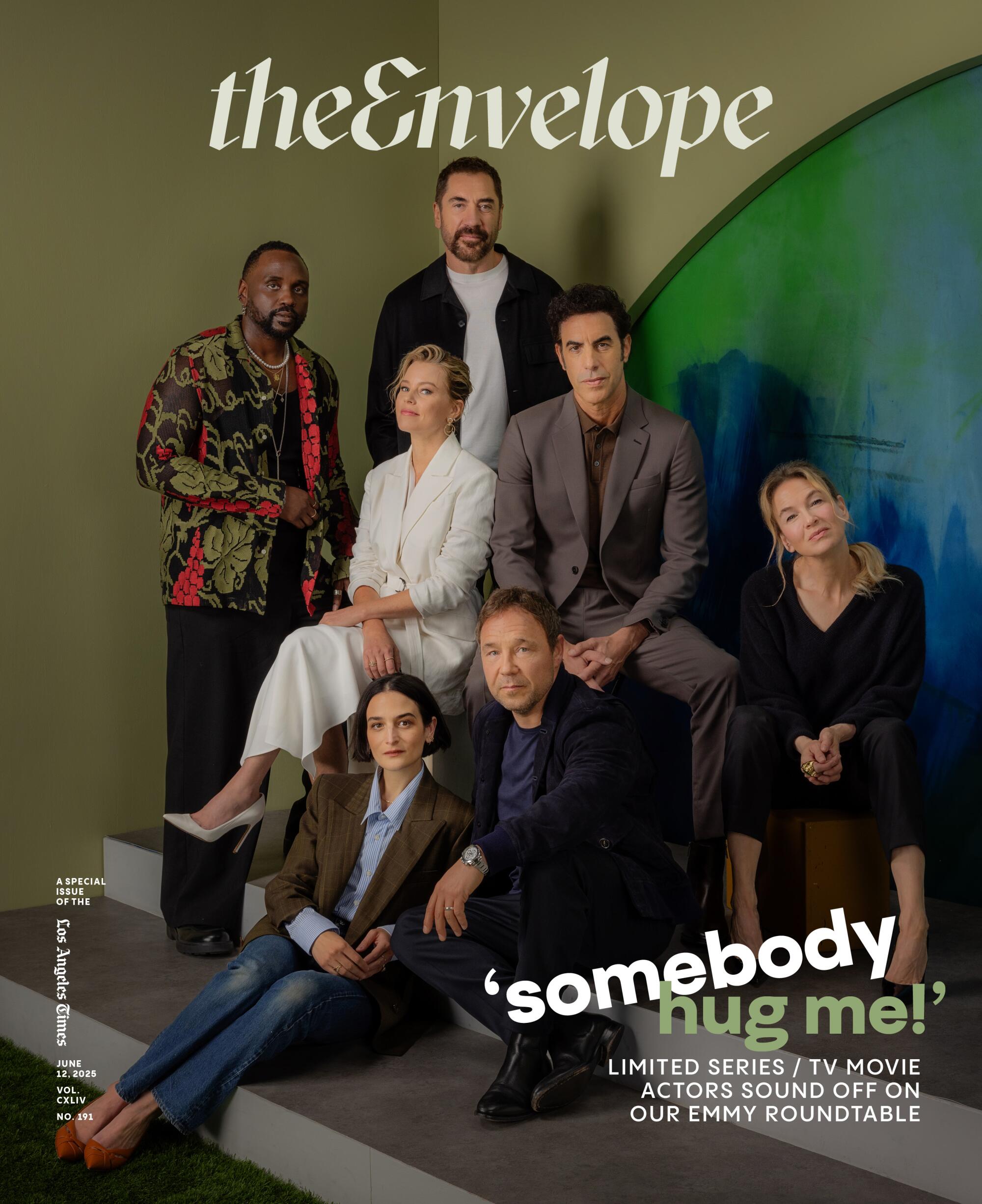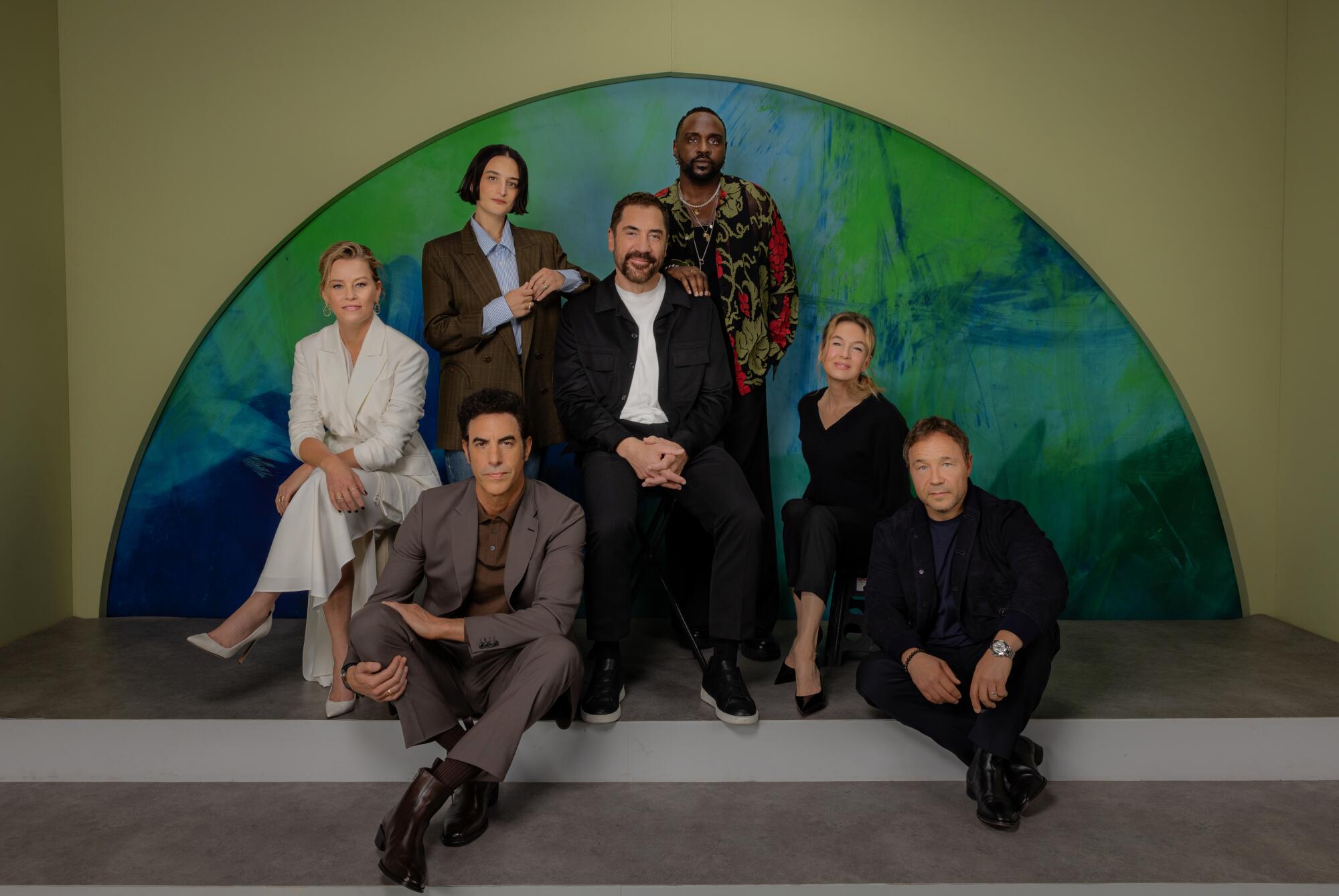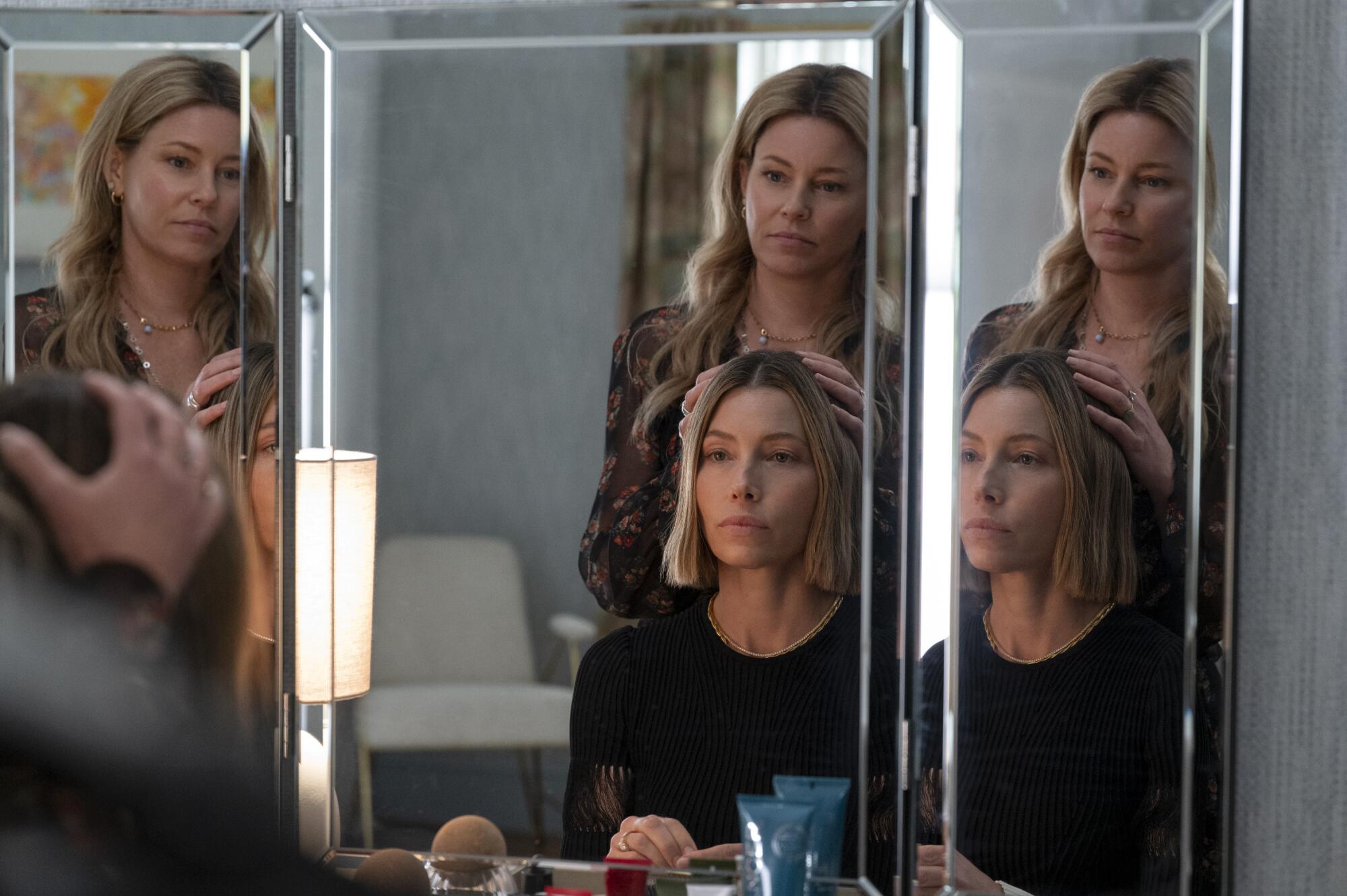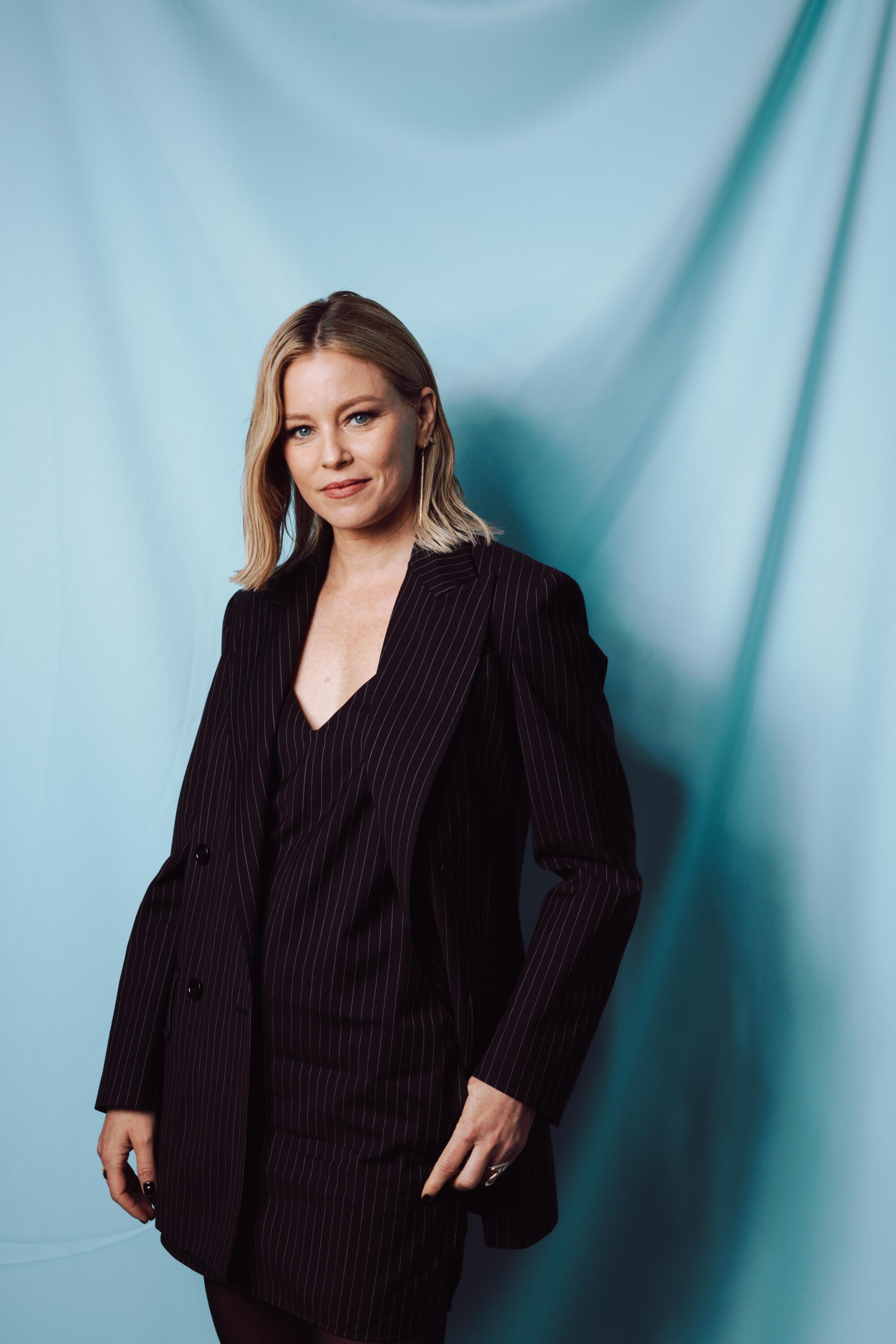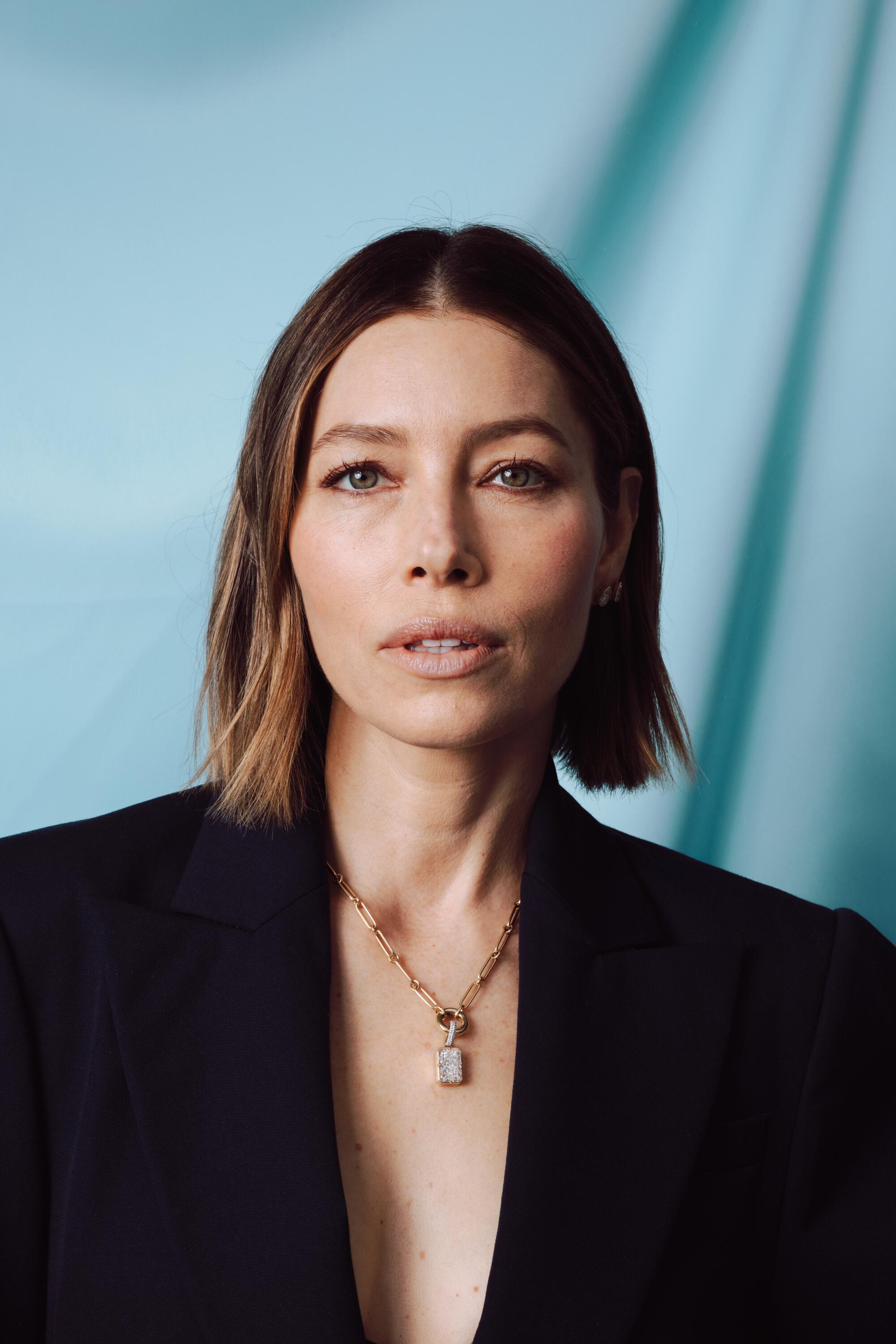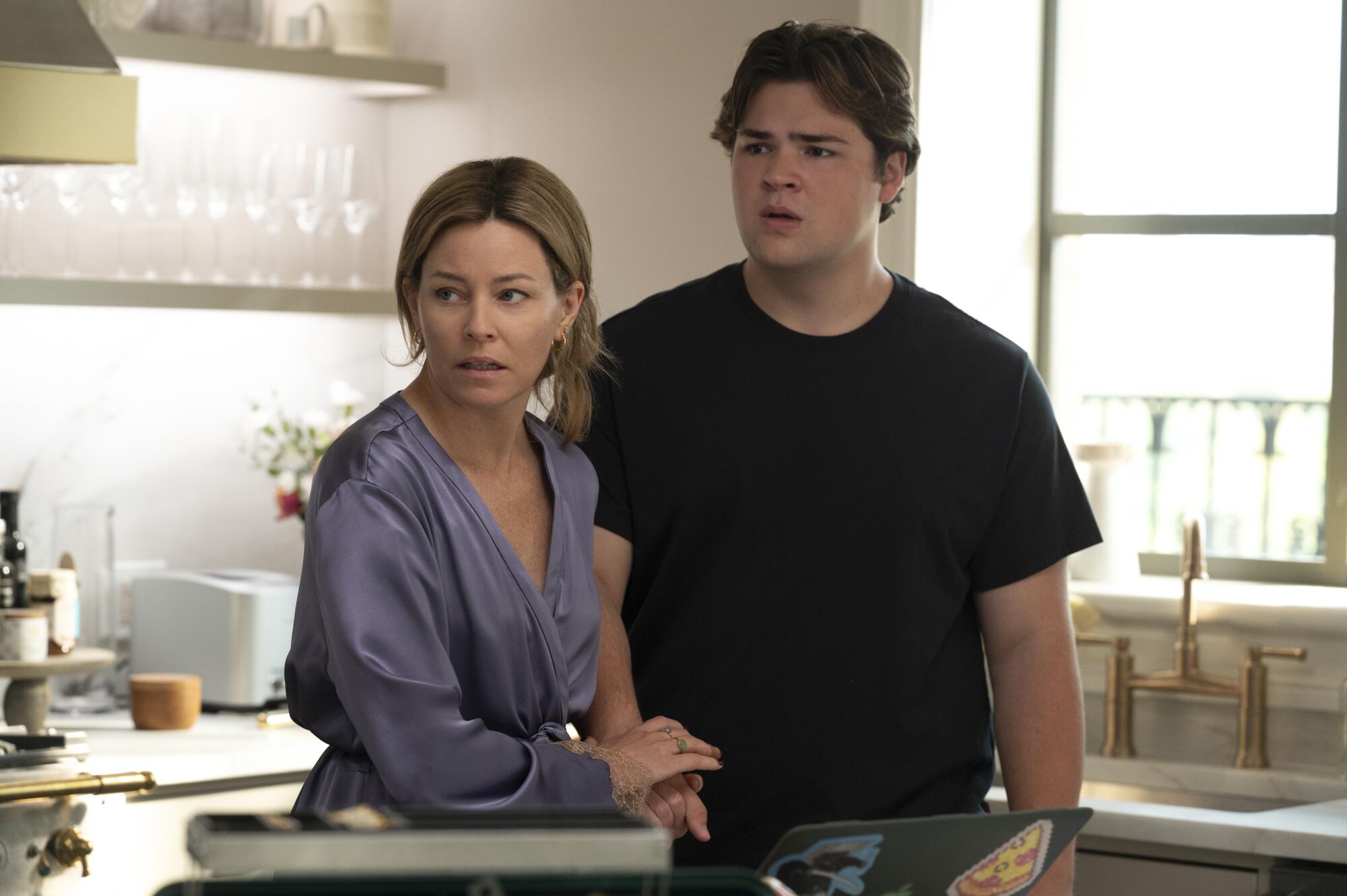Emmys Roundtable: 7 limited / TV movie contenders sound off
The Emmys’ limited series/TV movie acting categories have come to represent some of the best and most-talked-about shows on television, and this year’s crop of contenders is no exception.
The seven actors who joined the 2025 Envelope Roundtable were Javier Bardem, who plays father, victim and alleged molester Jose Menendez in Netflix’s “Monsters: The Lyle and Erik Menendez Story”; Renée Zellweger, who reprises her role as the British romantic heroine in “Bridget Jones: Mad About the Boy”; Stephen Graham, who co-created and stars in “Adolescence” as the father of a teenage boy who commits a heinous murder; Jenny Slate, who plays the best friend of a terminally ill woman in FX’s “Dying for Sex”; Brian Tyree Henry, who portrays a man posing as a federal agent in order to rip off drug dealers in Apple TV+’s “Dope Thief”; Elizabeth Banks, who takes on the role of an estranged sibling and recovering alcoholic in Prime Video’s “The Better Sister”; and Sacha Baron Cohen, who appears as the deceived husband of a successful filmmaker in Apple TV+’s “Disclaimer.”
The Times’ news and culture critic Lorraine Ali spoke to the group about the emotional fallout of a heavy scene, the art of defying expectations and more. Read highlights from their conversation below and watch video of the roundtable above.
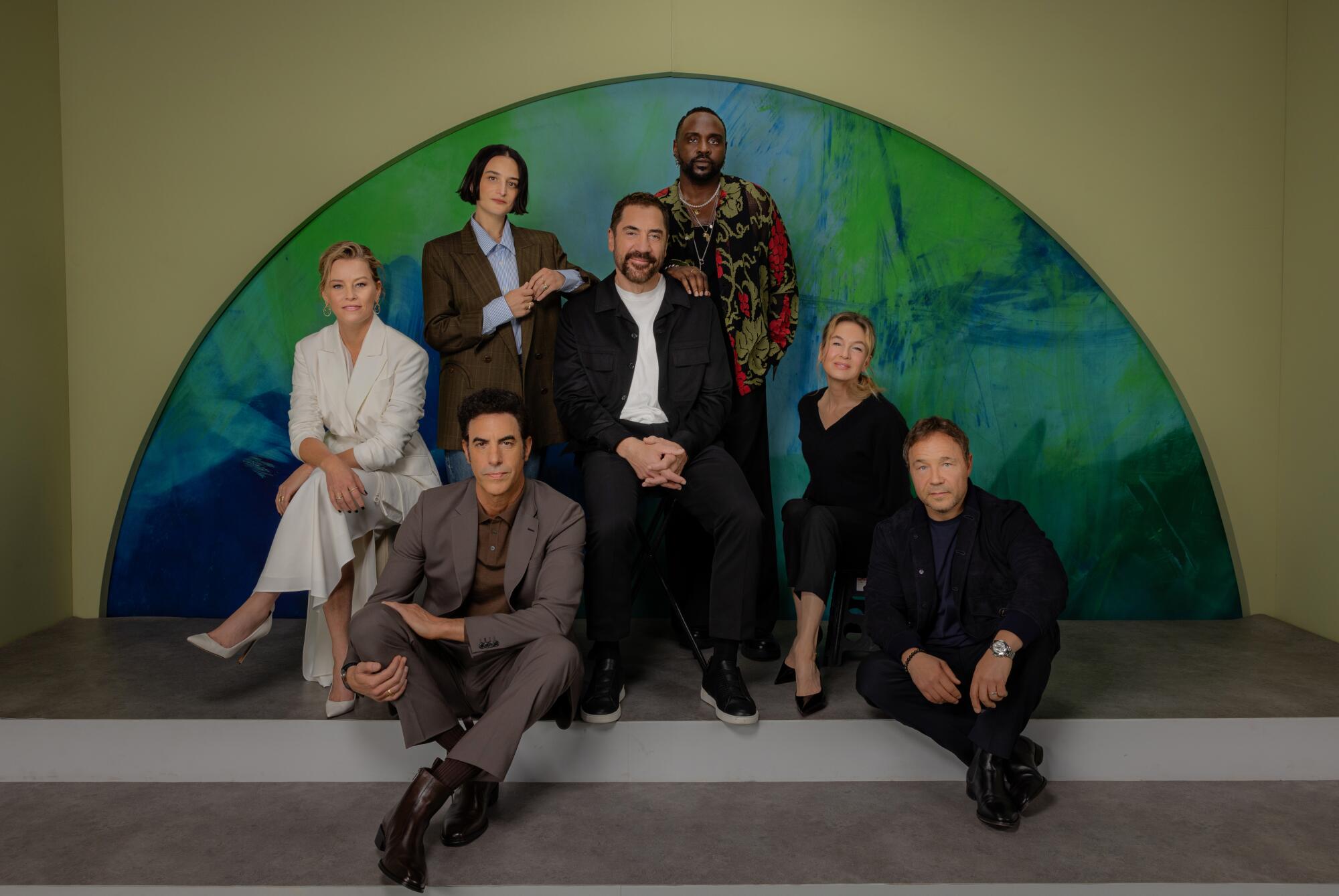
The 2025 Limited Series / TV Movie Roundtable: Elizabeth Banks, left, Sacha Baron Cohen, Jenny Slate, Javier Bardem, Brian Tyree Henry, Renée Zellweger and Stephen Graham.
Many of you move between drama and comedy. People often think, “Drama’s very serious and difficult, comedy’s light and easy.” Is that true?
Banks: I think the degree of difficulty with comedy is much higher. It’s really hard to sustainably make people laugh over time, whereas [with] drama, everyone relates to loss and pining for love that’s unrequited. Not everybody has great timing or is funny or gets satire.
Henry: There’s something fun about how closely intertwined they are. In my series, I’m playing a heroin addict running for my life, and I have this codependency with this friend … There’s a scene where I’ve been looking for him, and I’m high out of my mind, and I find him in my attic, and all he’s talking about is how he has to take a s—. And I’m like, “But they’re trying to kill us.” You just see him wincing and going through all these [groans]. It is so funny, but at the same time, you’re just terrified for both. There’s always humor somewhere in the drama.
Banks: There’s a reason why the theater [symbol] is a happy face/sad face. They’re very intertwined.
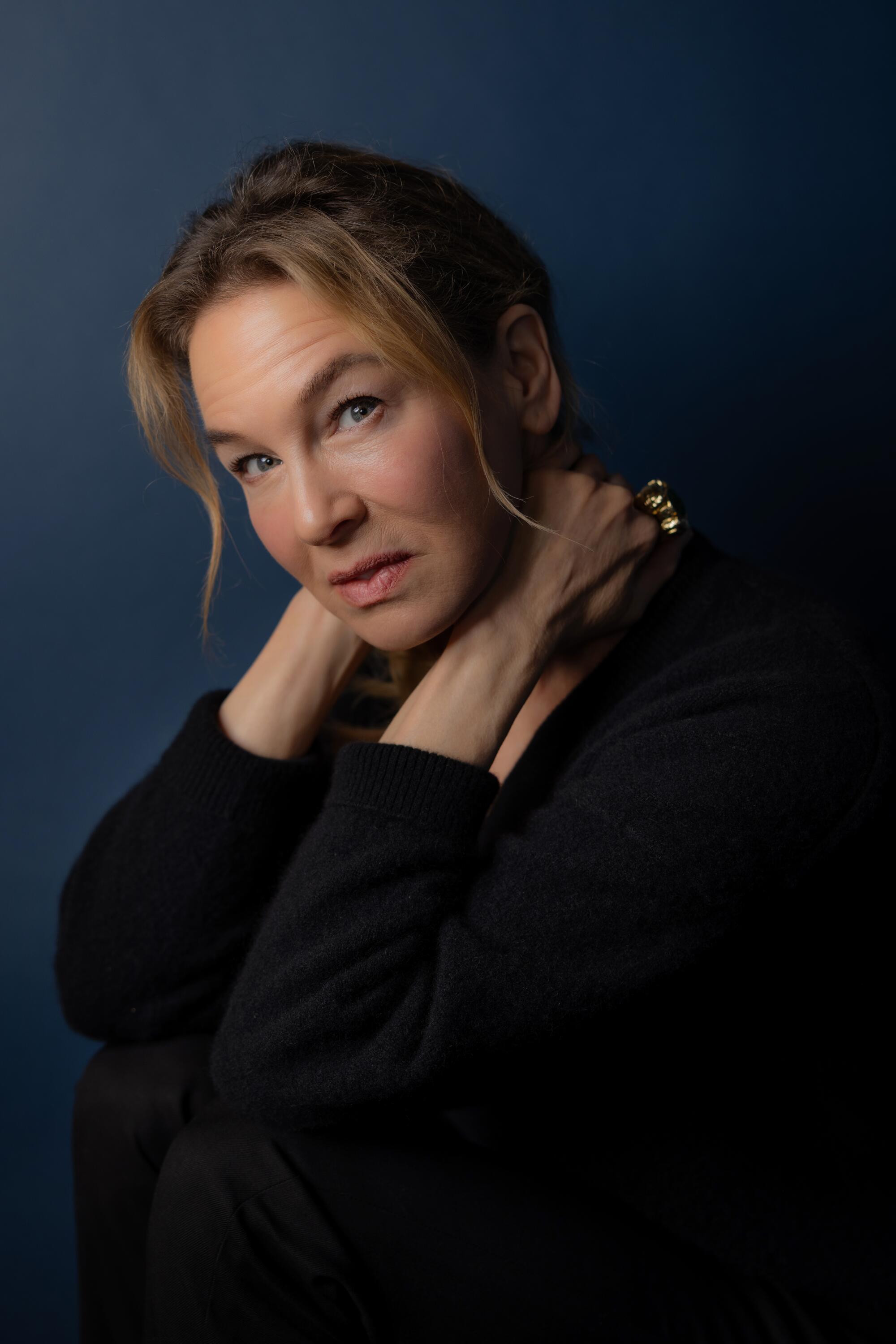
Renée Zellweger of “Bridget Jones: Mad About the Boy.”
Renée, with Bridget Jones — how has she changed over the last 25 years and where is she now with “Mad About the Boy”?
Zellweger: Nobody’s the same from one moment to the next, one chapter to the next and certainly not from one year to the next. It’s been a really interesting sort of experiment to revisit a character in the different phases of her life.
What I’m really grateful for is that the timing runs in parallel to the sort of experiences that you have in your early 20s, 30s and so on. With each iteration, I don’t have to pretend that I’m less than I am, because I don’t want to be the character that I was, or played, when she was 29, 35. I don’t want to do that, and I certainly don’t want to do that now.
So it was really nice to meet her again in this place of what she’s experiencing in the moment, which is bereavement and the loss of her great love, and being a mom, and trying to be responsible, and reevaluating what she values, and how she comports herself, and what’s important and all of that, because, of course, I relate to that in this moment.
There’s a certain level of sociopathy.
— Brian Tyree Henry, “Dope Thief,” on the lengths actors will go to get the shot
Stephen, “Adolescence” follows a family dealing with the fallout of their 13-year-old son being accused of a brutal murder. You direct and star in the series. What was it like being immersed in such heavy subject matter? Did it come home with you?
Graham: We did that first episode, the end of it was quite heavy and quite emotional. When we said, “Cut,” all of us older actors and the crew were very emotional. There were hugs and a bit of applause.
And then everyone would be like, “Where’s Owen?” [Cooper, the teenage actor who plays Graham’s character’s son]. “Is Owen OK? Is he with his child psychologist?” No, Owen’s upstairs playing swing ball with his tutor. It was like OK, that’s the way to do this — not to take myself too seriously when we say, “Cut,” but when I am there, immerse myself in it.
Let’s be honest, we can all be slightly self-obsessed. My missus, she’s the best for me because I’d phone her and say, “I had a really tough day. I had to cry all day. My wife’s died of cancer, and it was a really tough one.” She goes, “The dog s— all over the living room. I had to go shopping and the f— bag split when I got to Tesco. There was a flat tire. They’ve let the kids out of school early because there’s been a flood. And you’ve had a hard day pretending to be sad?”
Bardem: I totally agree with what Stephen says. You have a life with your family and your children that you have to really pay attention to. This is a job, and you just do the job as good as you can with your own limitations. You put everything into it when they say, “Action,” and when you’re out, you just leave it behind. Otherwise, it’s too much.
Certain scenes, certain moments stay with you because we work with what we are. But I think it doesn’t make you a better actor to really stay in character, as they say, for 24 hours. That doesn’t work for me. It actually makes me feel very confused if I do that.
On the show “Monsters” I tried to protect Cooper [Koch] and Nicholas [Alexander Chavez], the actors who play the children, because they were carrying the heavy weight on the show every day. I was trying to make them feel protected and loved and accompanied by us, the adults, and let them know that we are there for them and that this is fiction. Because they were going really deep into it, and they did an amazing job.
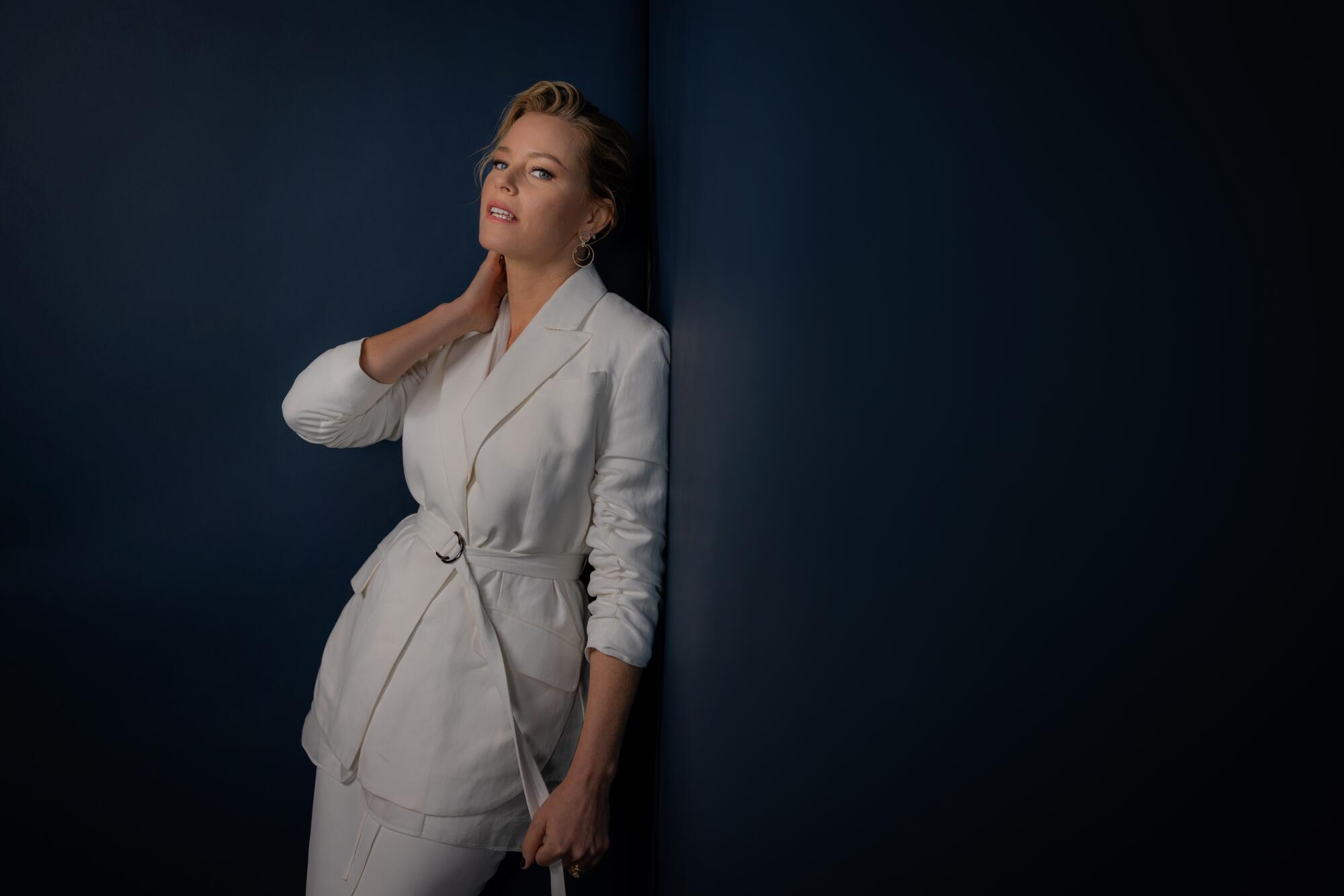
Elizabeth Banks of “The Better Sister.”
Elizabeth, in “The Better Sister,” you portray Nicky, a sister estranged from her sibling who’s been through quite a bit of her own trauma.
Banks: I play a drunk who’s lost her child and her husband, basically, to her little sister, played by Jessica Biel. She is grappling with trauma from her childhood, which she’s trying not to bring forward. She’s been working [with] Alcoholics Anonymous, an incredible program, to get through her stuff. But she’s also a fish out of water when she visits her sister, who [lives in a] very rarefied New York, literary, fancy rich world. My character basically lives in a trailer park in Ohio. There’s a lot going on. And there’s a murder mystery.
I loved the complication … but it brought up all of those things for me. I do think you absolutely leave most of that [heaviness] on set. You are mining it all for the character work, so you’ve got to find it, but I don’t need to then infect my own children with it.
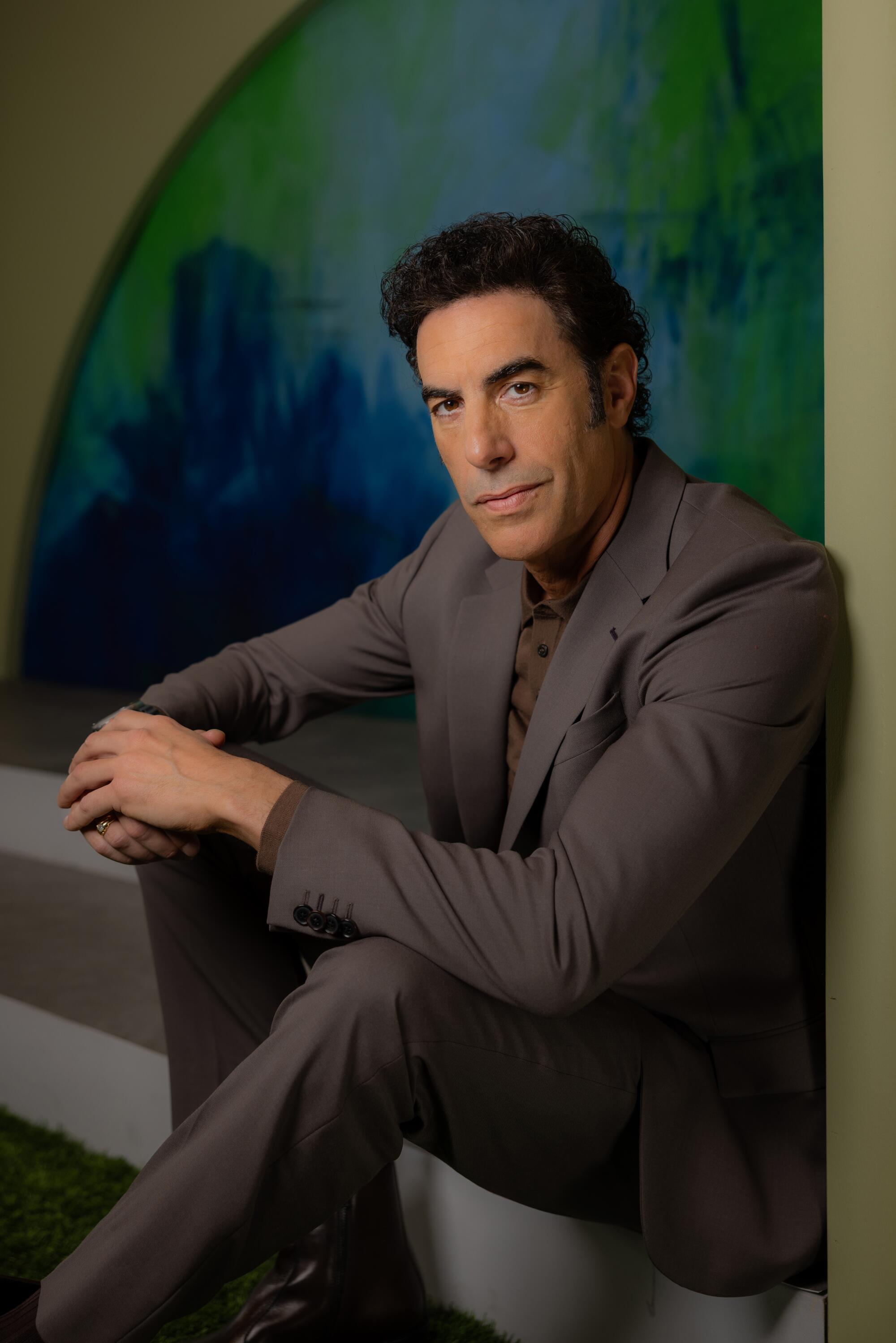
Sacha Baron Cohen of “Disclaimer.”
Sacha, you have played and created these really gregarious characters like Ali G or Borat. Your character in “Disclaimer,” he’s not a character you created, but he is very understated. Was that a challenge?
Cohen: It took me a long time to work out who the character was. I said to [director] Alfonso [Cuarón], “I don’t understand why this guy goes on that journey from where we see him in Act 1.” For me it was, how do you make this person unique?
We worked a lot through the specificity of what words he uses and what he actually says to explain and give hints for me as an actor. A lot of that was Alfonso Cuarón saying, “Take it down.” And there was a lot of rewriting and loads of drafts before I even understood how this guy reacts to the news and information that he believes about his wife.
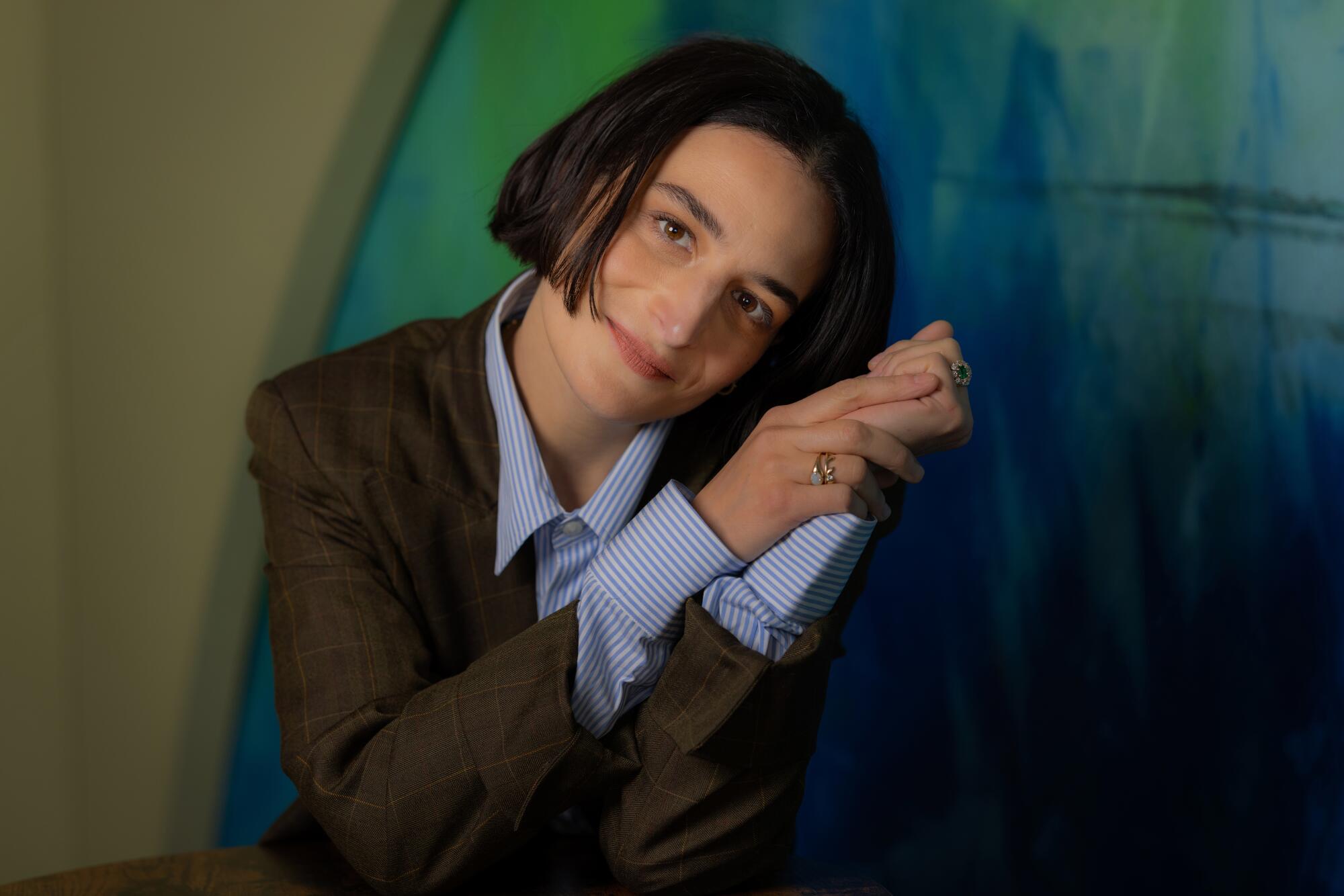
Jenny Slate of “Dying for Sex.”
Jenny, “Dying for Sex” is based on a true story about two friends. One has terminal cancer, and the other — your character — supports her right up until the end. Talk about what it was like to play that role in a series that alternates between biting humor and deep grief.
Slate: Michelle Williams, who does a brilliant job in this show, her energy is extending outward and [her character] is trying to experiment before she does the greatest experiment of all, which is to cross over into the other side. My character is really out there, not out there willy-nilly, but she will yell at people if they are being rude, wasteful or if she feels it’s unjust. [And she’s] going from blasting to taking all that energy and making it this tight laser, and pointing it right into care, and knowing more about herself at the end.
I am a peppy person, and I felt so excited to have the job that a lot of my day started with calming myself down. I’m at work with Michelle Williams and Sissy Spacek and Liz Meriwether and Shannon Murphy and being, like, “Siri, set a meditation timer for 10 minutes,” and making myself do alternate nostril breathing [exercises].
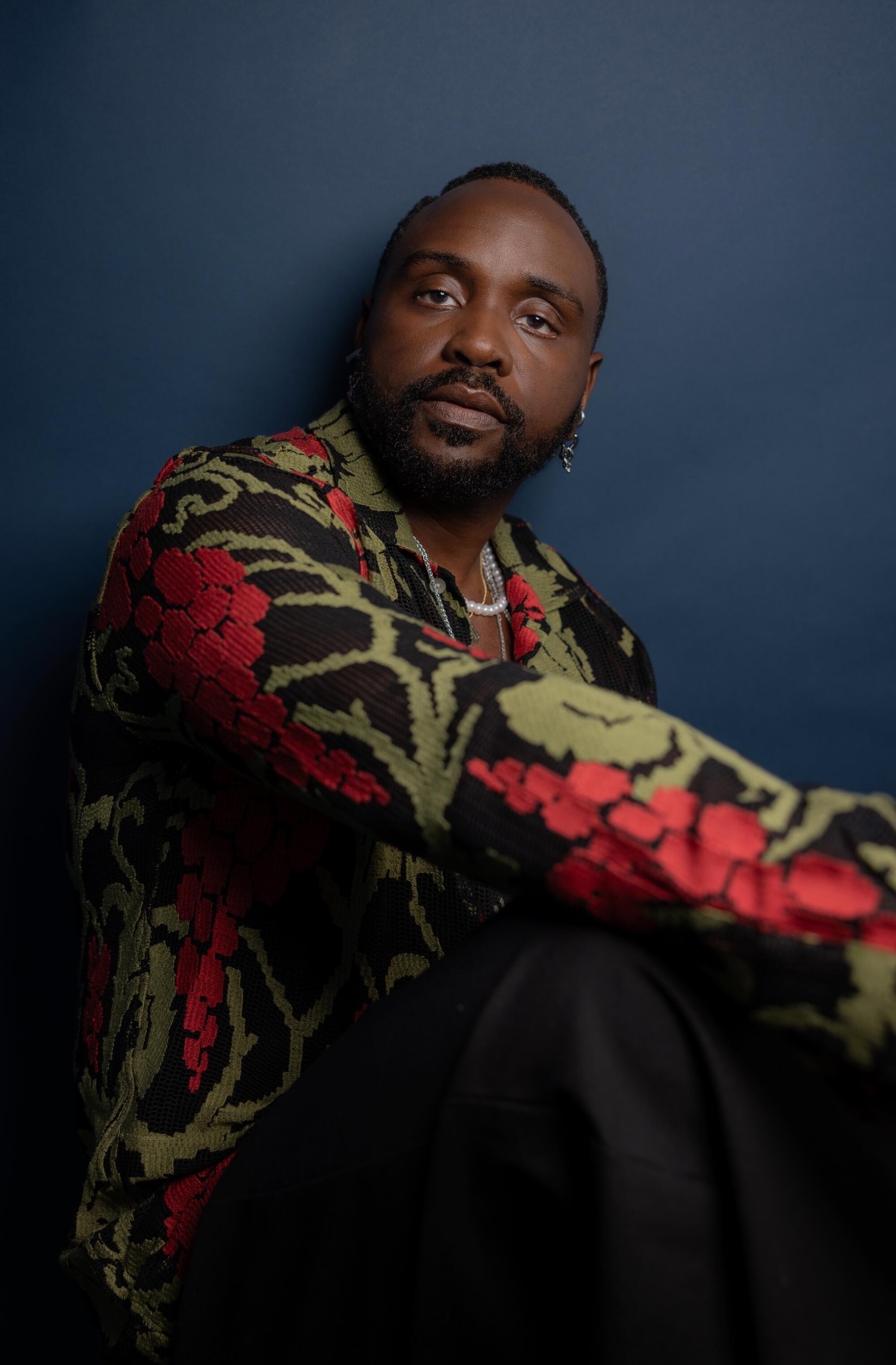
Brian Tyree Henry of “Dope Thief.”
Brian, many people came to know you from your role as Paper Boi in “Atlanta.” The series was groundbreaking and like nothing else on television. What was it like moving out of that world and onto other projects?
Henry: People really thought that I was this rapper that they pulled off the street from Atlanta. To me, that’s the greatest compliment … When I did “Bullet Train,” I was shocked at how many people thought I was British. I was like, “Oh, right. Now I’ve twisted your mind this way.” I was [the voice of] Megatron at one point, and now I’ve twisted your mind that way. My path in is always going to be stretching people’s imaginations, because they get so attached to characters that I’ve played that they really believe that I’m that person.
People feel like they have an ownership of who you are. I love the challenge of having to force the imaginations of the viewers and myself to see me in a departure [from] what they saw me [as] previously. Because I realize that when I walk in a room, before I even open my mouth, there’s 90 different things that are put on me or taken away from me because of how I look and how I carry myself.
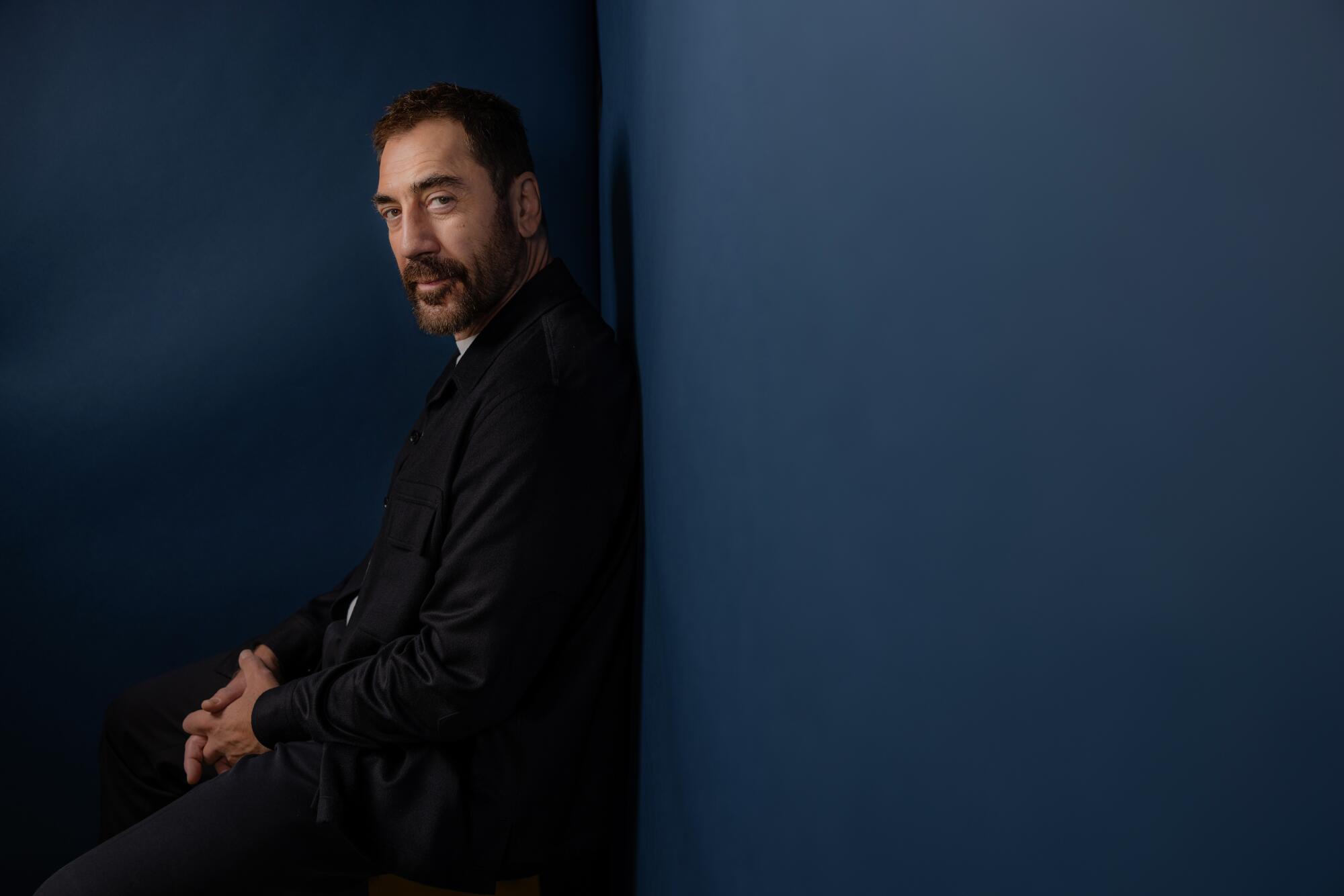
Javier Bardem of “Monsters: The Lyle and Erik Menendez Story.”
Javier, since doing the series are you now frequently asked about your own opinions on the Menendez case? The brothers claim their father molested them, and that is in part what led to them murdering their parents.
Bardem: I don’t think anybody knows. That’s the point. That was the great thing about playing that character, is you have to play it in a way that it’s not obvious that he did those things that he was accused of, because nobody knows, but at the same time you have to make people believe that he was capable.
I did say to Ryan [Murphy] that I can’t do a scene with a kid. Because in the beginning, they do drafts, and there were certain moments where I said, “I can’t. It’s not needed.” The only moment that I had a hard time was when [Jose] has to face [his] young kid. It was only a moment where Jose was mean to him. That’s not in my nature.
Henry: I discovered, while doing my series, “My body doesn’t know this isn’t real.” There’s an episode where I’m shot in the leg, and I’m bleeding out and I’m on all this different morphine and drugs and all this stuff, and I’m literally lying on this ground, take after take, having to mime this. To go through the delusion of this pain … in the middle of the takes, it was just so crazy. I would literally look at the crew and say, “Somebody hug me! Somebody!”
Stephen, that scene where you confront the boys in the parking lot with the bike, I was just like, “Oh, my God, how many times did he have to do that?” This kid gets in your face, and I was like, “Punch the kid!” My heart went out to you, man, not just as the character but as you being in there.
Graham: Because we did it all in one take, we had that unique quality. You’re using the best of two mediums. You’ve got that beauty and that spontaneity and that reality of the theater, and then you have the naturalism and the truth that we have with film and television. So by the time I get to that final bit, we’ve been through all those emotions. When I open the door and go into [Jamie’s] room, everything’s shaken. But it’s not you. It’s an out-of-body experience and just comes from somewhere else.
Bardem: Listen, we don’t do brain surgery, but let’s give ourselves some credit. We are generous in what we do because we are putting our bodies into an experience. We are doing this for something bigger than us, and that is the story that we’re telling.
What have been some of the more challenging or difficult moments for you, either in your career or your recent series?
Zellweger: Trying not to do what you’re feeling in the moment sometimes, because it’s not appropriate to what you’re telling. That happens in most shows, most things that you do. I think everybody experiences it where you’re bringing something from home and it doesn’t belong on the set. It’s impossible to leave it behind when you walk in because it’s bigger than you are in that moment.
Banks: I would say that the thing that I worked on the most for “The Better Sister” was [understanding] sobriety. I’m not sober. I love a bubbly rosé. So it really did bring up how much I think about drinking and how social it is and what that ritual is for me, and how this character is thinking about it every day and deciding every day to stay sober or not. I am also a huge fan of AA and sobriety programs. I think they’re incredible tools for everybody who works those programs. I was grateful for the access to all of that as I was making the series. But that’s what you get to do in TV. You get to explore episode by episode. You get to play out a lot more than just three acts.
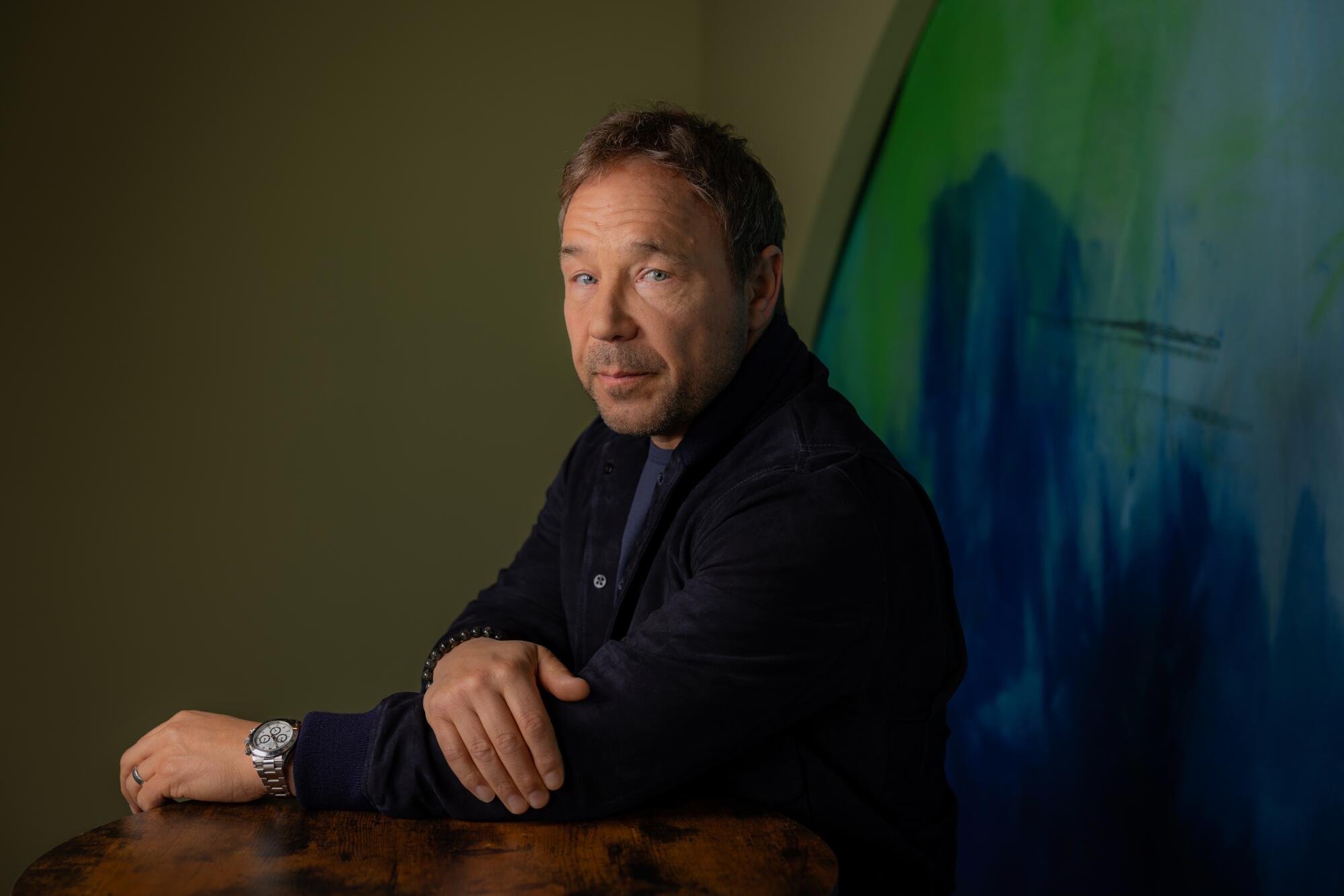
Stephen Graham of “Adolescence.”
Stephen, about the continuous single shot. It seems like it’s an incredibly difficult and complex way to shoot a series. Why do it?
Graham: It’s exceptionally difficult, I’m not going to lie. It’s like a swan glides across the water beautifully, but the legs are going rapidly underneath. A lot of it is done in preparation. We spend a whole week learning the script, and then the second week is just with the camera crew and the rest of the crew. It’s a choreography that you work out, getting an idea of where they want the camera to go, and the opportunity to embody the space ourselves.
Cohen: That reminds me of a bit of doing the undercover movies that I do because you have one take. … I did a scene where I’m wearing a bulletproof vest. There were a lot of the people in the audience who’d gone to this rally, a lot of them had machine guns. We knew they were going to get angry, but you’ve got to do the scene. You’ve got one time to get the scene right. But you also go, “OK, those guys have got guns. They’re trying to storm the stage. I haven’t quite finished the scene. When do I leave?” But you’ve got to get the scene. I could get shot, but that’s not important.
Henry: There’s a certain level of sociopathy.
Slate: I feel like I’m never on my mark, and it was always a very kind camera operator being like, “Hey, Jenny, you weren’t in the shot shoulder-wise.” I feel like such an idiot. Part of it is working through lifelong, longstanding feelings of “I’m a fool and my foolishness is going to make people incredibly angry with me.” And then really still wanting to participate and having no real certainty that I’m going to be able to do anything but just make all of my fears real. Part of the thing that I love about performance is I just want to experience the version of myself that does not collapse into useless fragments when I face the thing that scares me the most. I do that, and then I feel the appetite for performance again.
Do you see yourself in roles when you’re watching other people’s films or TV show?
Graham: At the end of the day, we’re all big fans of acting. That’s why we do it. Because when we were young, we were inspired by people on the screen, or we were inspired by places where we could put ourselves and lose our imaginations.
We have a lot of t— in this industry. But I think if we fight hard enough, we can come through. Do you know what I mean? It’s people that are here for the right reasons. It’s a collective. Acting is not a game of golf. It’s a team. It’s in front and it’s behind the camera. I think it’s important that we nourish that.
Henry: And remember that none of us are t—.
Bardem: What is a t—? I may be one of them and I don’t know it.
Graham: I’ll explain it to you later.
